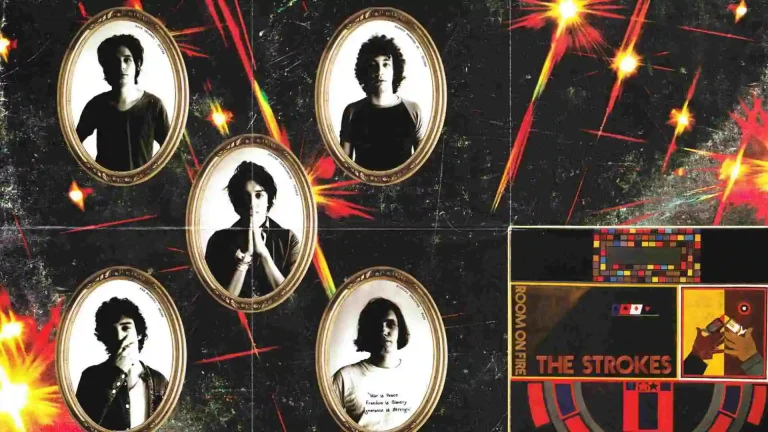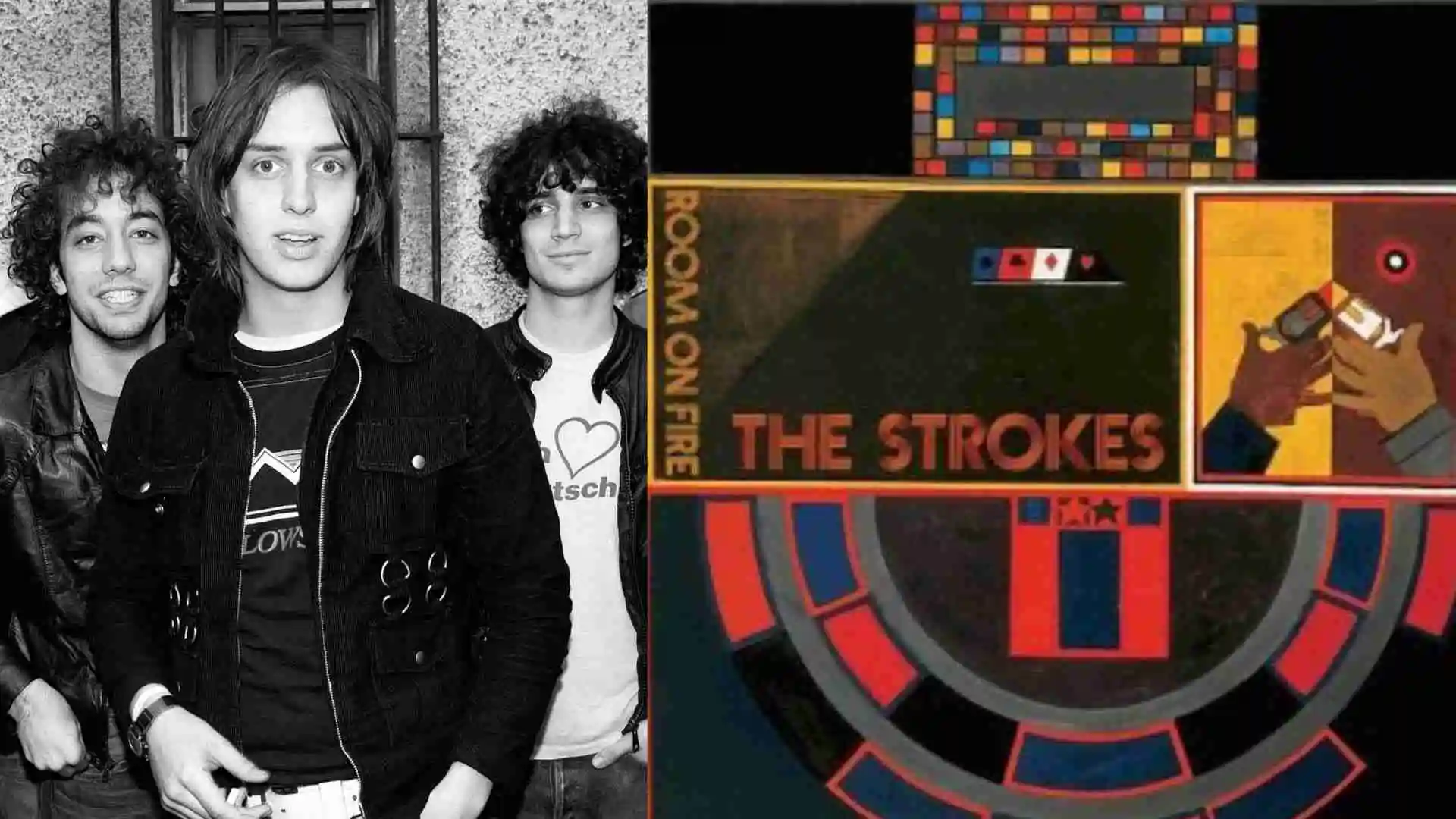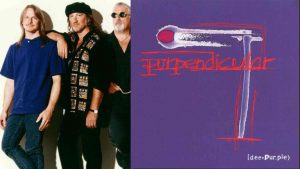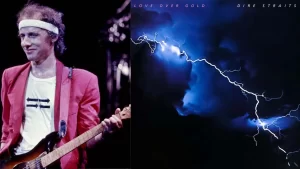
After the massive success of Is This It (2001), The Strokes faced the challenge of proving they weren’t just a one-hit wonder. Room on Fire arrived in 2003 with a more refined sound, yet it retained the garage and melancholic essence that propelled them to fame. While it didn’t have the same cultural impact as their debut at the time, it has since been recognized as one of the band’s finest works. The album also features one of their biggest hits and one of the most iconic songs of the 2000s: Reptilia.
What can we hear?
In Room on Fire, The Strokes consolidate their sonic identity with a balance of rebellion and sophistication. The sharp guitars of Nick Valensi and Albert Hammond Jr. weave hypnotic melodies, while the rhythmic foundation of Nikolai Fraiture and Fab Moretti provides a mechanical solidity that feels both precise and organic. Julian Casablancas, with his distinctive raspy tone and lyrics filled with youthful disillusionment, very much in a punk style, effortlessly conveys emotions. On the production side, the album retains the raw sound of its predecessor but introduces more polished elements, like subtle synthesizers and guitar effects that expand the band’s sonic palette.
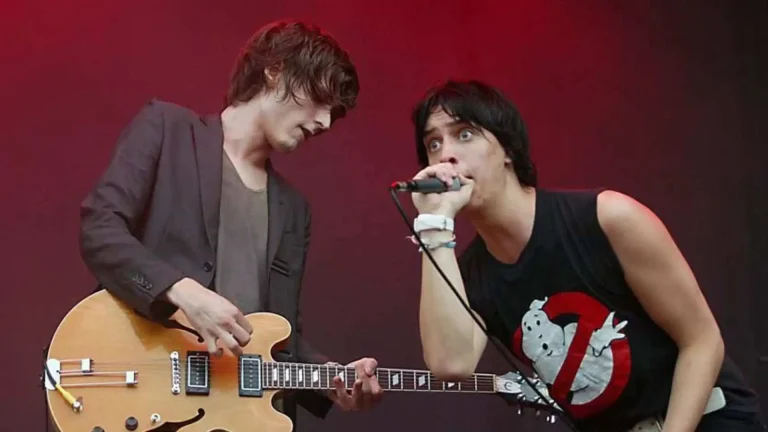
What Ever Happened? and Reptilia:
The album kicks off with an explosion of melancholy and frenzy. With a guitar that seems straight out of a modern western, Julian Casablancas sings with his characteristic disdain about disillusionment, while the synthesizers give hints of the band’s sonic evolution.
After this incredible start comes the song that most likely introduced you to The Strokes. You probably saw the video on MTV, played it on Guitar Hero, or even covered it with your high school band. Before their global hit “You Only Live Once”, the band’s biggest success for a long time was Reptilia. With its iconic riff, relentless drumming, and Casablancas’ rawer-than-ever voice, it takes the song to an unforgettable climax, one that, even today, still captivates and becomes addictive.
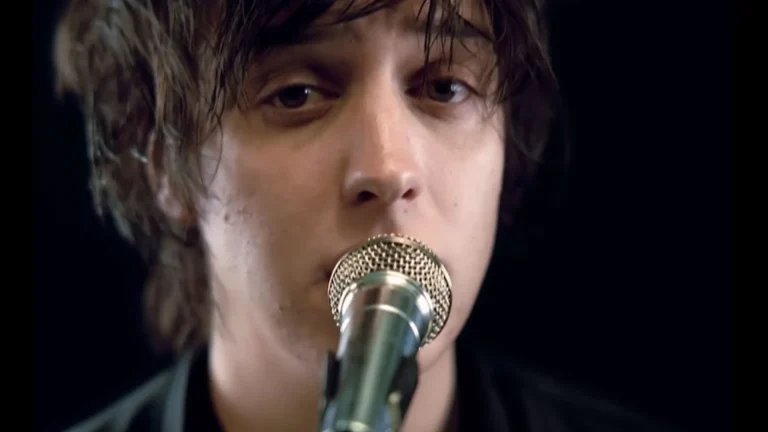
Automatic Stop and 12:51:
Automatic Stop offers a breather compared to the previous intensity. This track features a more relaxed groove, with reggae influences and a playful guitar by Albert Hammond Jr. The lyrics reflect an unstable and resigned relationship, a recurring theme throughout the album.
On the other hand, 12:51 sees the synthesizers take center stage, becoming a nocturnal anthem about youth and desire. Nick Valensi’s guitar mimics the texture of a keyboard, creating one of the most iconic moments of the album.

You Talk Way Too Much and Between Love & Hate:
You Talk Way Too Much is a hypnotic loop that reflects the weariness of an endless conversation, with catchy guitars and Casablancas’ indifferent attitude. It’s followed by Between Love & Hate, a track with bluesy undertones and shifts in intensity, where Julian’s voice fluctuates between disdain and desperation, encapsulating the emotional chaos of the album.
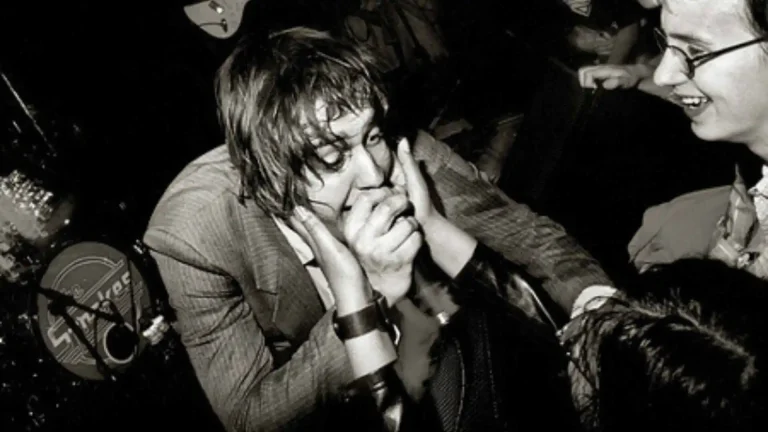
Meet Me in the Bathroom and Under Control:
Meet Me in the Bathroom captures the decadent essence of 2000s New York with a minimalist, dark vibe, evoking the abandon of Interpol and the detachment of Radiohead.
Under Control is more melancholic with soulful undertones, reminiscent of the softer moments of Toto, showcasing The Strokes in their more sophisticated and restrained side.

The Way It Is end The End Has No End:
The Way It Is picks up the pace with a straightforward structure and robust guitars, reminiscent of The Police’s more danceable era.
In The End Has No End, they combine immersive melodies with an existentialist vibe, echoing the melodic drama of Nirvana.
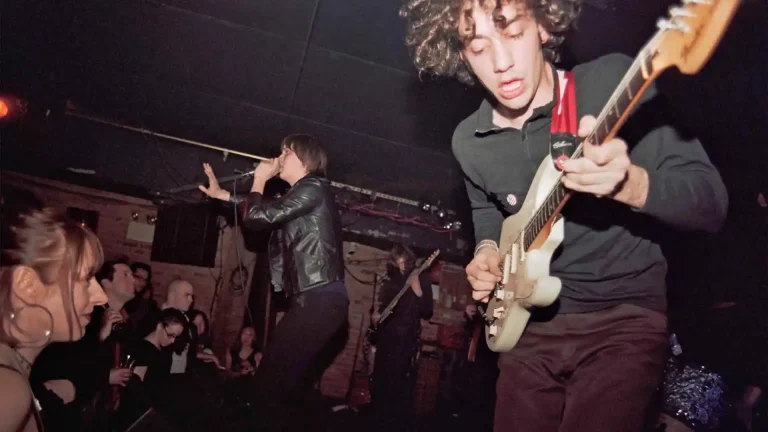
A perfect ending:
There’s no better way to end this wonderful album than with I Can’t Win. This track feels like a bittersweet farewell, with powerful guitars and Casablancas screaming in the chorus, reminiscent of Nirvana and Foo Fighters, creating an intensity that makes you feel like everything could collapse at any moment.
Room on Fire doesn’t try to reinvent the formula of Is This It, but instead refines and elevates it. Though it was met with mixed reviews at the time, it’s now regarded as a classic of indie rock, with some of The Strokes’ best tracks.
What do you think? What’s your favorite song from the album? Leave us your comments and let us know which other Strokes album needs a review on The Rock Review.
